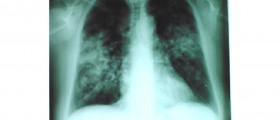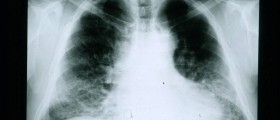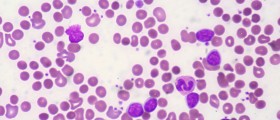Sarcoidosis is not so common chronic disease which, in the long run, affects multiple organs including the skin, lungs, heart, brain, eyes etc. It is a member of autoimmune diseases and is not curable, but it can be manageable. The goal of the treatment is to control the progression of the disease and reduce, if not to eliminate, all the symptoms and signs.
Sarcoidosis is in many cases a chronic illness and requires on-going treatment. Under such circumstances the risk of damage to multiple organs increases.

How does Sarcoidosis Affect the Body?
Similarly to other autoimmune diseases, in sarcoidosis the immune system starts to attack body's own cells. The destruction is responsible for inflammation, which eventually leads to formation of small lumps medically known as granulomas. These lumps are not harmful per se, but they may significantly interfere in the function of the affected organ and cause serious problems. In spite of proper treatment, scarring generally remains. Take, for instance, pulmonary sarcoidosis.
Formation of granulomas reduces the overall surface necessary for proper exchange of oxygen and carbon dioxide, hence it eventually leads to breathing problems. Sarcoidosis of the eyes, particularly if it is progressive and not treated adequately, may cause vision loss.
Diagnosing Sarcoidosis
There are no specific tests for diagnosing sarcoidosis. All patients undergo physical examination and additional tests and exams depending on their symptoms and the affected organs. Sarcoidosis of the lungs, for example, can be diagnosed with the assistance of chest X-ray, but it is definitely confirmed only after pulmonary function tests, blood tests and bronchoscopy performed together with taking samples of the changed tissues.
Sarcoidosis Treatment
Since sarcoidosis belongs to autoimmune diseases, it is clear that the disease requires treatment which will reduce inflammation caused by overactive immune system. This is why patients are prescribed immunosuppresants. The first line of treatment includes corticosteroids. Corticosteroids are highly efficient against inflammation and they may prevent formation of new granulomas but they are powerless against the already formed ones.
Patients who do not respond adequately to corticosteroids may be administered more potent immunosuppressants such as methotrexate, cytoxin and Imuran. These medications are generally used against cancer. However, they are equally effective in more severe forms of sarcoidosis. There are many side effects of both, corticosteroids and cytotoxic medications and this is why during the treatment patients are closely monitored.
Scientists all around the world are engaged in research regarding this severe illness and hopefully, in the near future, patients will benefit from new treatments.

















Your thoughts on this
Loading...